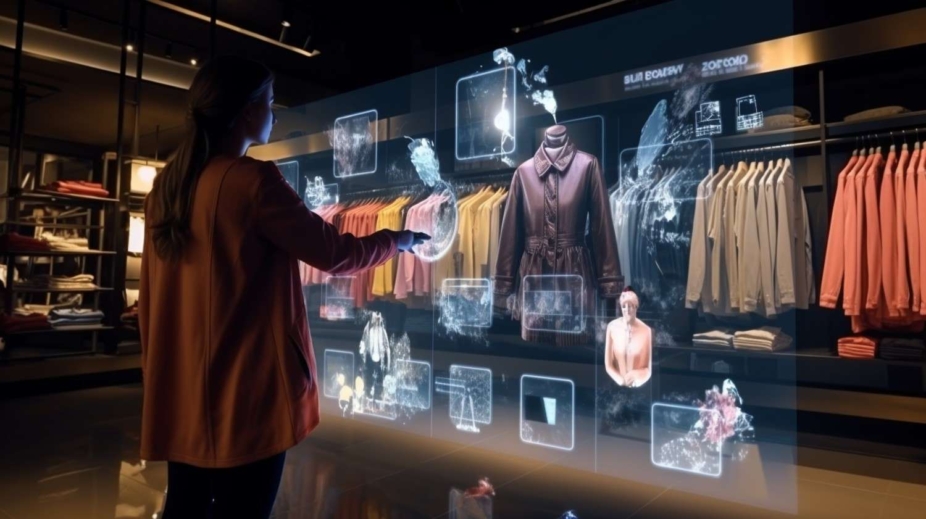Greetings! I'm Aneesh Sreedharan, CEO of 2Hats Logic Solutions. At 2Hats Logic Solutions, we are dedicated to providing technical expertise and resolving your concerns in the world of technology. Our blog page serves as a resource where we share insights and experiences, offering valuable perspectives on your queries.

The benefits of AI in retail are reshaping the industry, helping businesses deliver better customer experiences, streamline operations, and increase revenue. From online stores to brick-and-mortar outlets, AI is a practical tool that can drive measurable growth.
In this blog, we’ll explore how AI can help businesses personalize shopping experiences, optimize inventory, prevent fraud, and make smarter decisions. You’ll also learn how AI-powered tools are transforming marketing, supply chain management, and customer engagement, providing a competitive advantage to forward-thinking retailers.
In this blog, get the advantages of AI in retail and discover how these solutions can enhance efficiency, boost sales, and improve customer satisfaction across your business.
Benefits of AI in Retail Industry
Take a look at the advantages of AI in retail industry.
1. Automating Routine Tasks to Enhance Operational Efficiency
One of the most important benefits of AI in retail is its ability to automate repetitive and time-consuming tasks. From inventory management to order processing, AI-powered tools handle routine operations with speed and accuracy, freeing up staff to focus on more strategic activities.
How AI helps:
- Inventory updates: AI systems track stock levels, automatically reorder products, and reduce the risk of overstock or stockouts.
- Order processing: Automated workflows minimize human errors and speed up fulfillment.
- Reporting and analytics: AI generates real-time insights without manual intervention, helping managers make informed decisions quickly.
Why it matters:
By automating routine tasks, retailers can reduce operational costs, save time, and increase overall efficiency. This is especially valuable for eCommerce stores handling large volumes of orders or multi-location retail operations.
Pro Tip: Integrating AI into daily operations allows businesses to scale efficiently while maintaining high accuracy in key processes.
2. Empowering Employees with AI-Driven Insights
Another key benefit of AI in retail is its ability to support employees with actionable insights, helping them make smarter, faster decisions. AI doesn’t replace human staff; it empowers them to work more efficiently and focus on tasks that require creativity and judgment.
How AI helps employees:
- Real-time product suggestions: Store associates or online support teams can offer personalized recommendations to customers based on AI-driven insights.
- Sales and performance analytics: AI identifies trends and highlights high-performing products or areas needing attention.
- Decision support: AI tools can suggest optimal pricing, promotions, or stock allocation based on predictive data.
Why it matters:
By providing employees with AI-powered insights, retailers can improve customer interactions, enhance productivity, and reduce costly mistakes. For eCommerce businesses, this means faster response times and better-targeted recommendations for shoppers.
Pro Tip: Businesses that combine human expertise with AI insights often see higher sales conversions and stronger customer loyalty, making this one of the most tangible benefits of AI in retail.
3. Minimizing Losses through Predictive Analytics
A major benefit of AI in retail is its ability to predict potential losses and reduce risks. AI systems analyze sales data, customer behavior, and operational patterns to detect areas where losses could occur.
How AI helps:
- Theft and shrinkage detection: AI monitors unusual activity in-store or online to prevent fraud and inventory loss.
- Demand prediction: By forecasting product demand accurately, AI helps retailers avoid overstocking or understocking, minimizing financial loss.
- Operational risk management: AI identifies inefficiencies or bottlenecks that could impact profitability.
Why it matters:
Predictive analytics allows retailers to take proactive measures, saving money and improving operational reliability. This makes it easier to maintain healthy profit margins and ensure business stability.
4. Optimizing Pricing Strategies for Maximum Profitability
Another key advantage of AI in retail is dynamic pricing. AI-powered tools analyze demand, competitor pricing, seasonality, and inventory levels to automatically adjust prices in real time.
How AI helps:
- Real-time price adjustments: Ensure products remain competitively priced without constant manual intervention.
- Profit margin optimization: AI calculates the best pricing to maximize revenue while considering customer behavior.
- Promotion planning: Identify optimal timing for discounts or special offers to boost sales.
Why it matters:
Retailers using AI for pricing can increase revenue, improve competitiveness, and respond quickly to market changes. For online stores, this also helps in capturing price-sensitive customers effectively.
5. Enhancing Customer Experiences with Personalization
Perhaps one of the most visible benefits of AI in retail is the ability to deliver hyper-personalized shopping experiences. AI analyzes customer preferences, browsing patterns, and purchase history to recommend the right products at the right time.
How AI helps:
- Personalized product recommendations: Suggest items based on what customers are most likely to buy.
- Customized promotions and offers: AI tailors discounts and campaigns to individual preferences.
- Improved online navigation: Smart search and product discovery features make shopping faster and more enjoyable.
Why it matters:
Personalization drives higher engagement, repeat purchases, and customer loyalty. In eCommerce, AI-powered personalization can significantly boost conversion rates and average order value.
6. Predictive Customer Insights for Better Engagement
A major benefit of AI in retail is its ability to anticipate customer behavior. AI analyzes past purchases, browsing patterns, and preferences to provide actionable insights that help retailers engage customers effectively.
How AI helps:
- Identifying loyal customers: Recognize high-value shoppers and tailor rewards or offers.
- Churn prediction: Detect customers at risk of leaving and take proactive steps to retain them.
- Upselling and cross-selling opportunities: Suggest complementary products to increase average order value.
Why it matters:
Predictive customer insights allow retailers to make data-driven decisions, improve retention, and maximize lifetime customer value. This is a critical advantage in today’s competitive ecommerce market.
7. Optimized Supply Chain and Logistics
AI plays a vital role in streamlining supply chain operations, another key benefit of AI in retail. By predicting demand and optimizing delivery routes, AI ensures products reach customers faster and more efficiently.
How AI helps:
- Demand-driven restocking: Predicts which products need replenishment and when.
- Route optimization: Improves delivery speed and reduces transportation costs.
- Warehouse efficiency: AI automates inventory sorting and storage allocation.
Why it matters:
An AI-optimized supply chain reduces operational costs, speeds up deliveries, and ensures customers receive the right products at the right time.
8. Preventing Fraud and Ensuring Secure Transactions
Security is a growing concern in retail, and AI provides real-time fraud detection, making it another major benefit of AI in retail. AI monitors transactions and behaviors to identify potential risks before they escalate.
How AI helps:
- Detecting suspicious activity: Spot unusual buying patterns or fraudulent accounts instantly.
- Protecting customer data: AI ensures sensitive information remains secure.
- Reducing financial loss: Early detection minimizes revenue losses from fraud.
Why it matters:
By incorporating AI for fraud prevention, retailers protect both their revenue and their customers, building trust and a safe shopping environment across online and offline channels.
9. Visual Search and Smart Product Discovery
A standout benefit of AI in retail is its ability to improve product discovery. AI-powered visual search and recommendation engines make it easier for customers to find exactly what they’re looking for, enhancing the shopping experience.
How AI helps:
- Visual search tools: Customers can search using images to find similar products instantly.
- Smart recommendations: AI suggests complementary or trending products based on user behavior.
- Enhanced navigation: AI streamlines search results, reducing friction and increasing engagement.
Why it matters:
Improved product discovery leads to higher conversion rates, reduced bounce rates, and increased average order value, making shopping more satisfying and efficient.
10. Data-Driven Strategic Decision Making
Finally, one of the most critical benefits of AI in retail is its ability to turn data into actionable business decisions. AI transforms vast amounts of customer and operational data into insights that guide strategy.
How AI helps:
- Trend forecasting: Identify emerging products, categories, or market shifts.
- Performance optimization: Determine which promotions, campaigns, or products yield the best ROI.
- Resource allocation: Allocate staff, inventory, and marketing budgets based on predictive insights.
Why it matters:
With AI-driven decision-making, retailers can stay ahead of competition, reduce guesswork, and maximize profitability, ensuring long-term growth in both eCommerce and physical retail operations.
Need AI solutions for your retail business?
Ready to start your project?
Conclusion
The benefits of AI in retail are vast and transformative. From automating routine tasks and optimizing inventory to enhancing customer experiences and preventing fraud, AI empowers retailers to make smarter decisions, increase efficiency, and drive growth.
By leveraging AI-powered tools, businesses can personalize shopping experiences, forecast demand accurately, streamline supply chains, and gain actionable insights. All of which contribute to higher revenue and stronger customer loyalty.
As the retail landscape becomes increasingly competitive, understanding and implementing these AI advantages is no longer optional. Get customized AI services to stay ahead of the curve, deliver superior experiences, and achieve long-term success.
Table of contents

Related Articles







